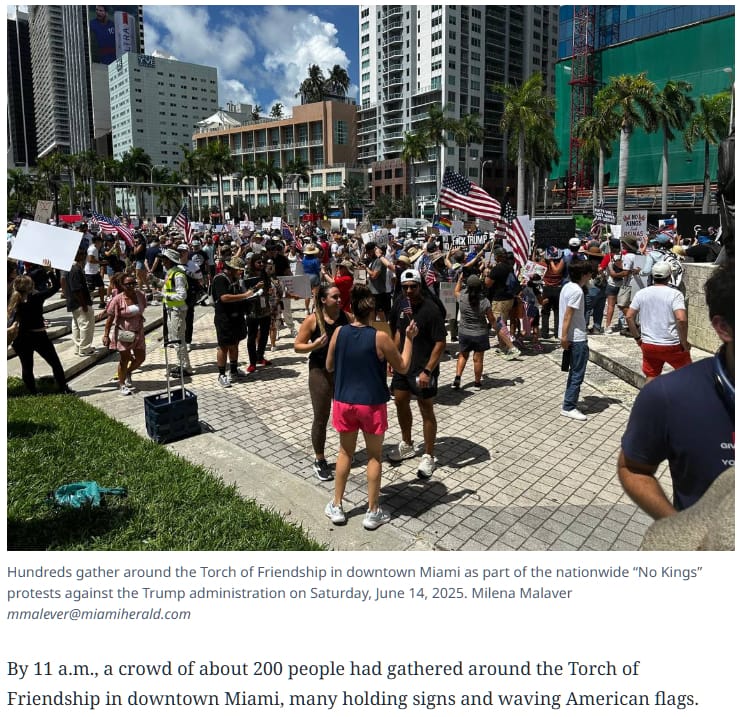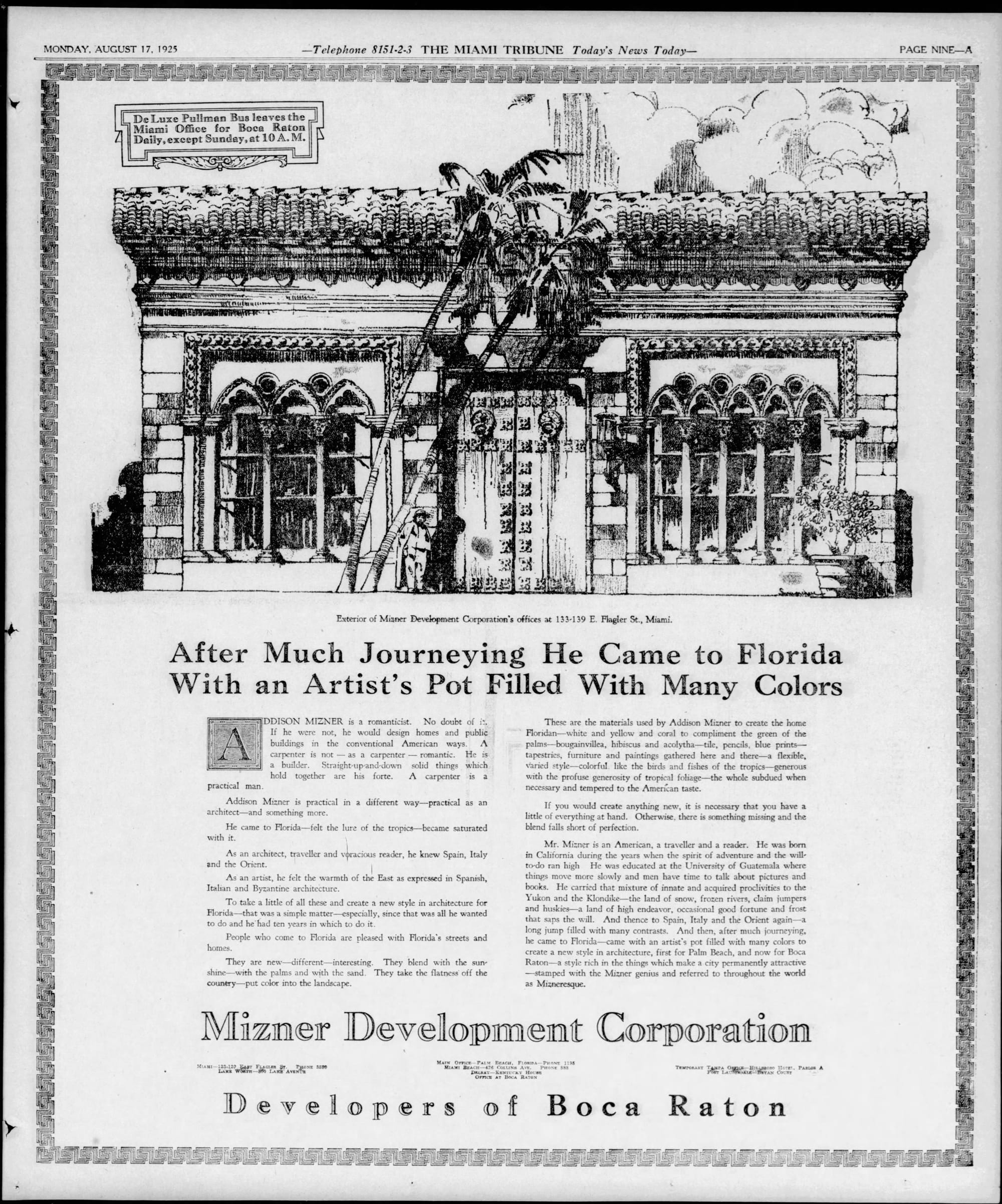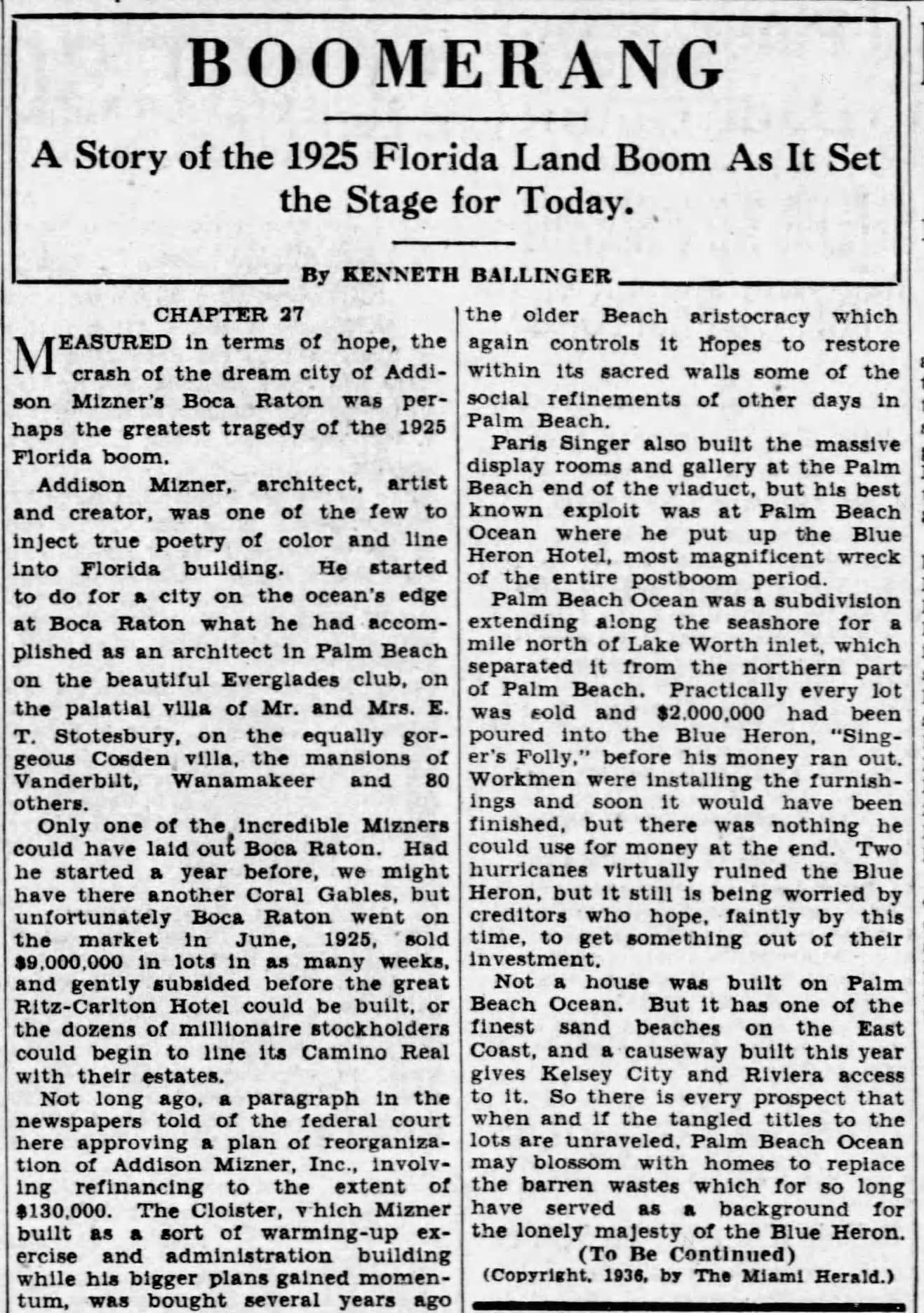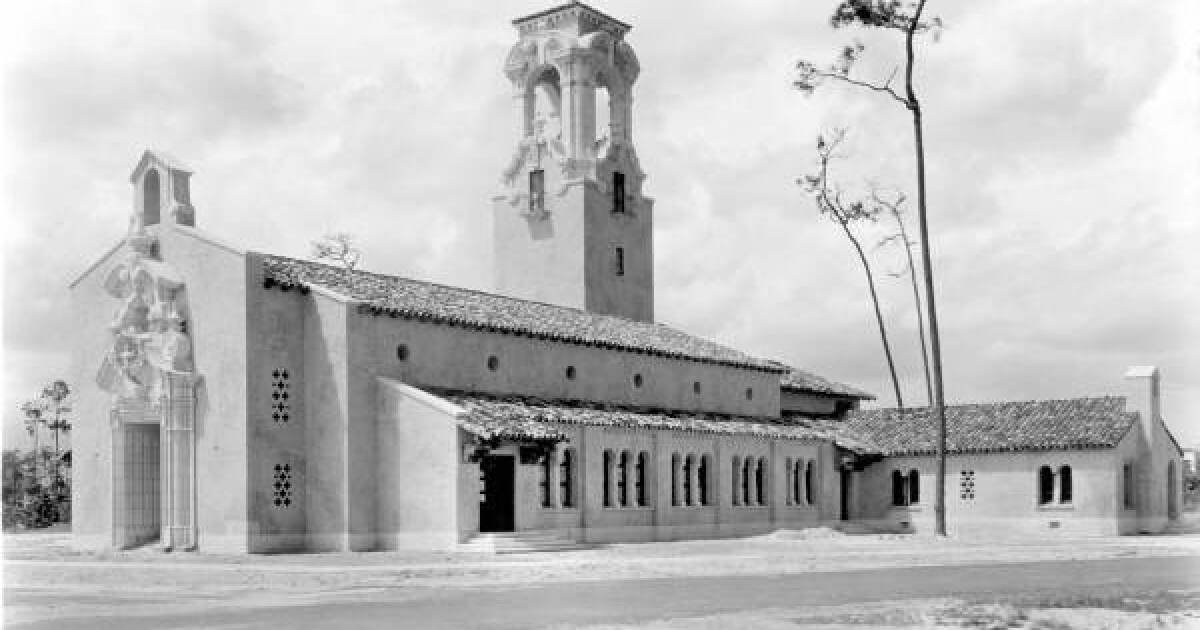Week ending in June 20, 2025

Introduction
Another week that felt like a month. Saturday, the first day of the "week" for TWIFL, saw the biggest protests in years in South Florida. Then there were Juneteenth celebrations and discussions on why Juneteenth might not be worth celebrating, according to Dr. Marvin Dunn, a retired professor and creator of Miami's Black History Tree. Also, my mommy bought me another camera, because she's great and supportive.

Speaking of support, TWIFL got off the ground thanks to injections of cash from my parents for equipment that the cost of living in Miami wouldn't otherwise allow me to afford. I'm so grateful to them and to the few people who have given "tips" to TWIFL through the link below. The reality is, I love doing this. My hope is this endeavor both informs you, the reader, and, well, helps offset the cost of sending my kids to college. Yikes!
Finite Disappointment
South Florida's Housing Crisis as told by Alligator S***

The Herald had an interesting headline that promises to explain why affordable housing is such an issue in South Florida but when you click on it you see its just AI generated alligator shit. So, instead, I'm going to post a picture of a more qualified journalist, who isn't a major cause of global warming. Bear the History Hound. Meanwhile, McClatchy papers (The Miami Herald is owned by the hedge fund controlled McClatchy Media Company) seem to depend on the Kansas City Star for, well, lots.

Listen, The Miami Herald is a fantastic, albeit imperfect paper. They do great work and have a solid, perhaps even great, editorial board. I have much less of a problem with The Herald than I do with Chatham Asset Fund Alligator Shit Factory that seems to be pressuring The Herald (and my hometown paper, The Sacramento Bee, which, sadly, I have less respect for, but I digress) to publishing, well, AI generated alligator shit and whatever the hell US Weekly and The Street are trying to sell.
If Chatham wanted to share subscriber access across the McClatchy Media Company network, so we could use one subscription to access The Herald, The Sacramento Bee and, yes, The Kansas City Star (along with about 30 other dailies) I'd not only be excited about that, I'd pay a lot more for my subscription.
But, no, they'd rather cut staff, sell off papers and magazines, and downsize their journalism capacity and publish AI generated alligator shit (last link not specifically a story about Chatham).
Meanwhile, apparently the paper of record for South Florida didn't have the capacity to send reporters to all of the major protests in South Florida this week so they published updates on the protests remotely, calling thousands of protesters hundreds, from a different protest an hour away.


Mangoes season brings out the best in Miamians (sarcasm)

Poor Jeff Bezos can't afford to maintain a sanitary environment in Miami

"Miami's Billionaire Bunker," an island filled with billionaires like Ivanka Trump, Jeff Bezos and raw sewage, is trying to pipe its excrement elsewhere and claims that the city receiving it should be happy to do so.
You can't make this, ahem, shit, up.
Also, the article linked above talks about how unsanitary septic systems are. The reality is that septic systems are literally composters or biodigesters and when properly maintained and used they are better for the environment and just as sanitary as sewage systems. The issue is the properly maintained part– the billionaires obviously can afford to maintain them. The issue is the people on Billionaire Bunker simply don't want to allot space for septic systems, which require large "drain fields," so they want to ship their excrement to their neighbors, in pipes, under Biscayne Bay.
What could possibly go wrong?
Historic Interlude
A record breaking deal on June 17, 1925, which ends up just another Florida Man land scam



Stories from 1925 about the new building going up for the Mizner Corporation. Turns out they were part of a bunch of exaggerations made by unscrupulous land developers.
"Measured in terms of hope, the crash of the dream city of Addison Mizner's Boca Raton was perhaps the greatest tragedy of the 1925 Florida boom," opened a 31 March, 1936 Miami Herald story by Kenneth Ballinger on the rise and fall of the Mizner Corporation, which for about a year and a half starting on June 17, 1925, was a South Florida sensation. "Addison Mizner, architect, artist and creator, was one of the few to inject true poetry of color and line into Florida building," the story continued.
As I was perusing the headlines from 100 years ago this week I was struck by the story of a record breaking deal to build an 18-story tall building at 133 E. Flagler Street. As locals know, there is very little of "East Flagler Street" as it runs a scant three blocks into Bayfront Park, which itself is little more than a block wide before it too ends in Biscayne Bay. I couldn't recall any "skyscrapers" of 18-stories or even ten stories.
There is no 18-story tall building at that location today and it got me wondering whatever happened to that record breaking deal. As it started in 1925, the answer likely lay in the housing market collapse of 1926 in Florida that arguably drug the rest of the world into a Depression by 1929.


I don't have the time to do a crawl through the archives to find the full story of what happened to the promised building by the Mizner Corporation, which was planning a new city of Boca Raton. I did however find the above 1936 story, 11 years later, in the Miami Herald bemoaning its demise.

The original building that was purchased with a 99-year lease, according to a 1 March 1931 Miami Herald story, torn down and replaced with what I presume to be the current buildings (I have no firm evidence of this). These new buildings, however, only stayed in Mizner Corporation's hands until April 1927. In the same Miami Herald story it reports the Mizner Corporation's "meteoric career" was in retrospect a "'mistaken or unjustifiable' capital investment and it is no surprise to find the Mizner Corporation quit-claiming all interest in the property."
As I've mentioned before, Florida generally and Miami's real estate deals have been a major contributing factor to at least two global economic meltdowns, the Great Depression that started in 1929 and the Great Recession, which started in 2008.
Meanwhile, is Florida's magical and bloated real estate market about to pull the world into another economic meltdown?
Infinite Hope
How a Miami Senior High School graduate changed TV for ever
The Miami Herald's Howard Cohen has a great piece in the paper about Miami Senior High School Alumni Desi Arnaz and his wife Lucille Ball changed TV forever: including giving us all of those Star Trek re-runs that led to a multi-billion dollar franchise.
A wonderful piece about an iconic Miamian and how Miami has impacted American culture for nearly a century. And the feature piece is a call out for an event this Saturday (the day this post comes out):
[Todd S.] Purdum will read selections from his new book, “Desi Arnaz: The Man Who Invented Television,” Saturday evening, June 21, at Books & Books in Coral Gables. The book is a tribute to a man who started his entertainment life in Miami. He died in 1986.
You may even see me there!
The invasive species being removed at record rates

No Kings Protests and Counter Protests

I love democracy in action! Nothing quite like peaceful but passionate protests and counter protests to make democracy feel great.
I wrote a bit about this earlier this week and put together several videos that you can find here:

Bear the History Hound Finds

Bearing history isn't always easy, which is why its good to have a loyal friend with you to help you find the good, the bad and the ugly in history and in future history (that's current news). Bear the History Hound is here, as always, to help with that.
Juneteenth Videos
To be clear, this one was made by TWIFL--not a Bear the History Hound find, it just seemed to fit here.
Juneteenth stories

Legendary Miami Herald Journalist Bea Hines's story on Juneteenth this week, "We've come far since the first Juneteenth. But we still have a long way to go."
Coral Gables First Church celebrates 100 years

The dark history of schooling in America
NPR 1A story summary: "What has school meant for students, and who influenced how schools function the way they do? And what are alternatives for how school could work for students?"
The Lesson of 1933: Why these professors of fascism are leaving America

Why one professor of International Affairs "would conclude that the forces of illiberalism seem weaker than they did a week ago."








